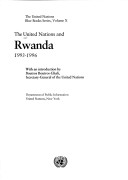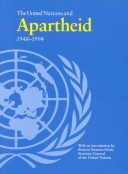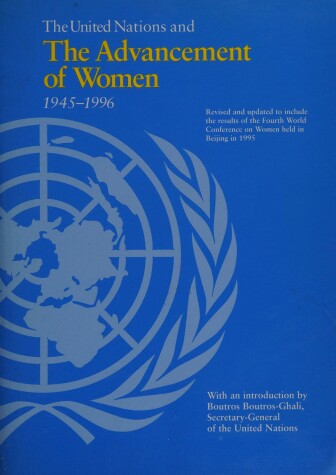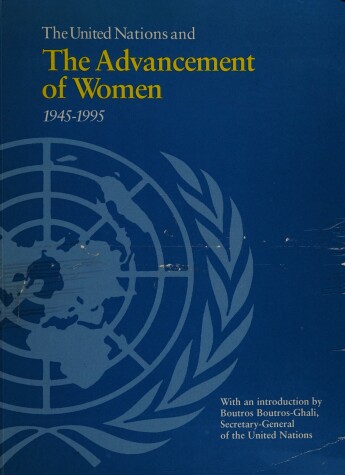United Nations Blue Book S.
6 total works
v. 10
The genocide in Rwanda in 1994 presented the international community with challenges of unprecedented scale. This is a comprehensive account of the response of the United Nations and its member states to the civil strife, large-scale massacres and military hostilities. More than 180 documents relating to the crises are included.
v. 1
The central role played by the United Nations in supporting the struggle against apartheid in South Africa, and in focusing world-wide attention on the country is chronicled in this publication. In an extensive introduction, the UN Secretary General Boutros Boutros-Ghali gives an overview of the UN's contribution to South Africa's historic transformation. The texts of over 200 key documents relating to the struggle between 1948-1994 are gathered together. Statements by President Nelson Mandela, Olive Tambo, Chief Albert J. Luthuli and other leading figures are included. This reference book should be of interest to contemporary historians, journalists, academics, students, policymakers, and anyone interested in the long fight against apartheid or in the work of the UN.
v. 6
Throughout its first half century, the United Nations has served as a catalyst for the global advancement of women. Working to promote the principles of gender equality and non-discrimination enshrined in the Organization's Charter, the United Nations has been instrumental in promoting recognition of women's fundamental human rights, in codifying those rights in legally binding international agreements and in forstering greater understanding of the central role played by women in peace-building and in economic and social development.
v. 8
This work is an account of the United Nations involvement in Somalia after the civil war, famine and the collapse of governmental authority. It carried out a broad mandate which involved peacekeeping and enforcement, as well as humanitarian aid, the promotion of national reconciliation and assistance in rebuilding Somalia's devastated infrastructure and institutions. This volume contains key documents relating to these events, complemented by an extensive introduction by Boutros Boutros-Ghali and a detailed chronology.
v. 12
When Eritreans went to the polls in 1993, their overwhelming vote in favour of becoming a sovereign state brought a formal end to one of Africa's longest wars. A major success for United Nations electoral assistance operations, the referendum also contributed greatly to stability in the Horn of Africa during a particularly volatile period in the region's history and provided yet another illustration of the intrinsic links between democratization, development and peace. This publication includes more than 40 key documents relating to the UN's involvement with Eritrea. A detailed chronology of events is also included.
v. 6
Throughout its first half century, the United Nations has served as a catalyst for the global advancement of women. This "Blue Book" includes more than one hundred United Nations documents relating to women's rights, and chronicles the evolution of a campaign in which the initial focus on political and family life has moved on to urgent issues such as poverty, violence against women and equal access to education, employment and health care. Complementing the documents are an extensive introduction by Secretary-General Boutros Boutros-Ghali and detailed chronologies. The "Blue Book Series" is designed to provide primary research and reference tools for scholars, policy makers, journalists and others interested in gaining a deeper understanding of the work of the United Nations.




